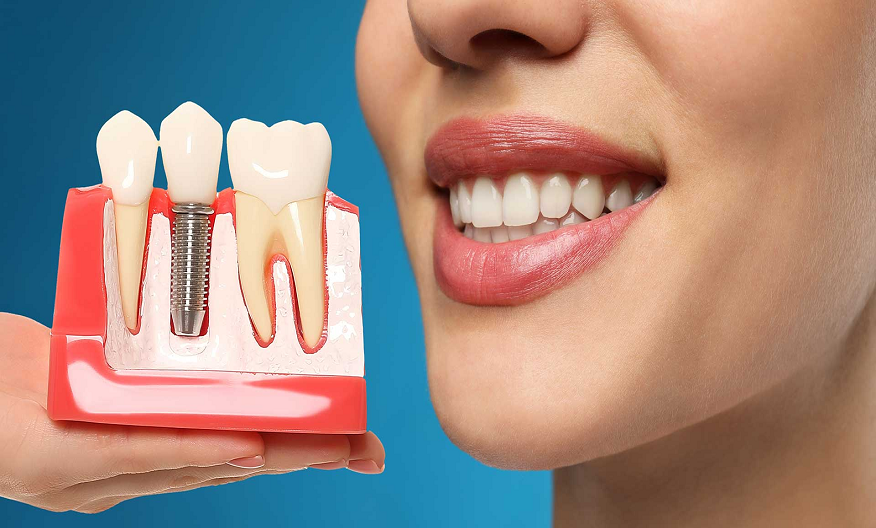
Dental implants are a permanent solution for missing teeth. They look, feel, and function like natural teeth. They also help preserve bone and improve oral health.
The surgical placement of an implant involves a series of steps that your dentist will discuss with you. The process is usually done under IV sedation or local anesthesia.
Permanent Solution to Missing Teeth
The dental implant replaces your missing tooth roots, restoring the stimulation that keeps jaw tissue healthy.
Increased Accuracy and Safety
Image-guided surgery lets your surgeon see the exact position of critical structures like bones, nerves, adjacent teeth, and sinus cavities, making surgical placement more accurate and safer. This also reduces complication risks.
Traditional implant surgery relies on the walls of the empty tooth socket to fill with bone in a process called osseointegration. This can sometimes be problematic if the walls are thin or in cases of significant bone loss and may require additional procedures like bone grafting before an implant can be placed.
Computer-guided implant technology lets your dentist know if the walls of your tooth socket are thick enough to hold an implant, eliminating the need for bone grafting and other pretreatments. This may allow for same-day implant placement, allowing you to return to full oral function much sooner than previous treatments.
Longevity
Dental implants last longer than tooth replacement options, such as dentures and bridges. This is because they are more like natural teeth, with an artificial root and a crown, both of which fuse to the jaw bone through a process known as osseointegration.
This fusion also helps prevent future bone loss in the jaw, which would otherwise create a sunken appearance and weaken surrounding teeth. Implants are not indestructible, however, and may require surgery to fix issues such as a damaged implant or the removal of a withered tooth.
Before an implant can be placed, the dentist will evaluate the health and thickness of your jaw bone. If the existing bone is not thick enough, they can provide bone grafts to build up the area for the implant. Using CBCT imaging, they can even help plan an implant’s placement to avoid complications. This includes ensuring the implant will not interfere with nerves or arteries.
Stability
The stability of the surgical placement of dental implants Plainview NY is a crucial aspect of its success. Several factors affect the primary stability, including the micro geometry of the implant and the drilling protocol. A larger diameter and a conical shape increase the contact area of the implant with bone, resulting in better primary stability. However, the linear relationship between implant length and primary strength ends at 12 mm.
X-ray and CAT scans can be used to measure the stability of an implant in the bone, but these methods are expensive and expose patients to radiation. Resonance frequency analysis (RFA) is an inexpensive and non-invasive technique that can measure the stiffness of the bone-implant system and thus provides insight into the implant’s stability.
In the immediate load implant procedure, the post-insertion, the abutment attachment, and the fake tooth or denture are done on the same day. This speeds up the whole process and reduces complications.
Ease of Maintenance
The advanced scanning technology and surgical guide allow the dentist to manipulate the position of the implant about surrounding tissues and teeth, minimizing complications. It also reduces the number of cuts needed in the implant, further lowering surgery time and healing.
Unlike tooth-supported bridges, implants don’t require cutting down healthy teeth to support them, which preserves more of the natural structure of your mouth. This improves oral health, as the remaining teeth can now chew and bite typically and more efficiently.
Dental implants look like your teeth and function similarly, making them easy to maintain. You brush and floss them regularly and attend dental appointments to keep them looking and performing at their best. They are also more stable than dentures, which can shift and move out of place. They help you speak better and also prevent jaw deterioration caused by space.
